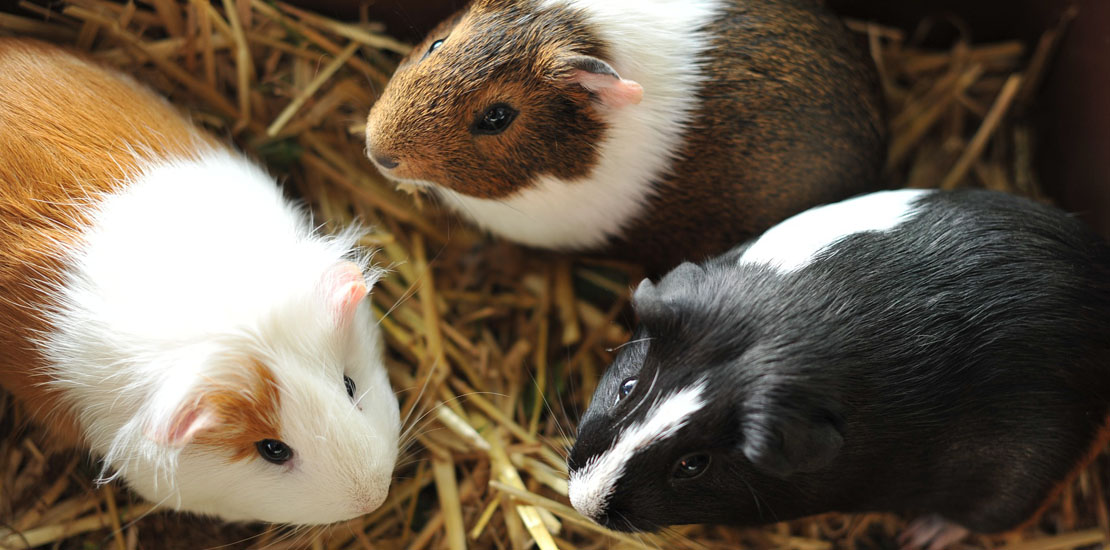Guinea pigs, also known as cavy or domestic guinea pig, are popular pets all over the world. However, many people wonder if these cute and cuddly animals are actually rodents. The short answer is yes, guinea pigs belong to the order Rodentia, which consists of over 2,200 species of mammals. In this article, we will delve deeper into the characteristics of rodents and guinea pigs, their classification, habitat, diet, health and care, and why they make great pets for people of all ages.
Seemore: Can Guinea Pigs Eat Asparagus? – A Complete Guide
Contents
Are Guinea Pigs Rodents?

Yes, guinea pigs are indeed rodents. They share many physical and behavioral characteristics with other members of the rodent family, such as mice, rats, and hamsters. All rodents have two pairs of incisors in their upper and lower jaws that continue to grow throughout their lives. This adaptation allows them to gnaw on tough vegetation and other objects to maintain their teeth at a manageable length.
Characteristics of Rodents
The word “rodent” comes from the Latin word “rodere,” which means to gnaw. This characteristic is what distinguishes rodents from other mammal species. Besides their continuously growing incisors, rodents also have a single pair of sharp-edged molars on each side of the jaw for grinding their food. They have a small stomach and a large cecum, a pouch-like structure in their digestive system that helps break down plant material.
Rodents are also known for their remarkable reproductive abilities. They typically have large litters with short gestation periods, allowing them to quickly repopulate their numbers. Another defining characteristic of rodents is their excellent sense of smell, which they use to find food and navigate their surroundings.
Guinea Pig Classification

Guinea pigs belong to the scientific order Rodentia, the largest order of mammals. They are classified under the family Caviidae and genus Cavia. The scientific name for guinea pig is Cavia porcellus.
Distinctive Features of Guinea Pigs
Guinea pigs have a compact body shape with short legs, making them excellent runners. They have a round head with large eyes and no visible tail. Their ears are also short and rounded, giving them an adorable appearance. One of the most distinctive features of guinea pigs is their thick coat of fur, which can come in a variety of colors and patterns. Some common colors include black, white, brown, and orange, while pattern variations include solid, agouti, and roan.
Guinea pigs are also sexually dimorphic, meaning males and females have different physical characteristics. Male guinea pigs, also called boars, have longer genitalia and a thicker neck than females, known as sows. They also tend to be slightly larger than females. However, both sexes make equally fantastic pets.
Habitat and Diet of Guinea Pigs

Guinea pigs are native to South America, specifically the Andes Mountains region. They were first domesticated by the Incas around 5000 BC, and later brought to Europe by Spanish explorers in the 16th century. Today, they can be found in homes all over the world as beloved pets.
In their natural habitat, guinea pigs live in groups called herds. They are social animals and thrive in the company of other guinea pigs. In the wild, they would roam freely and graze on grass, herbs, and other vegetation. As herbivores, their diet consists mainly of hay, vegetables, and fruits. It is essential to provide your pet guinea pig with a balanced and varied diet to ensure their health and well-being.
| Food Group | Examples |
|---|---|
| Hay | Timothy, orchard, alfalfa |
| Vegetables | Carrots, bell peppers, cucumbers |
| Fruits | Apples, strawberries, blueberries |
| Pellets | Guinea pig-specific pellets |
It is crucial to avoid feeding your guinea pig foods that are toxic to them, such as chocolate, onions, and dairy products. These can cause serious health issues for your furry friend.
Health and Care of Guinea Pigs

Guinea pigs have a life expectancy of 5-8 years, depending on their living conditions and overall health. Keeping your guinea pig in good health requires regular care and attention. Here are some essential tips for ensuring your pet stays happy and healthy:
1. Provide a Large Cage
When it comes to cages for guinea pigs, the bigger, the better. Guinea pigs need space to exercise and explore, so a cage should be at least 7.5 square feet for one or two pets. However, more is always better, especially if you have multiple guinea pigs. The cage should have solid flooring, as wire mesh can hurt their delicate feet.
2. Keep Them Comfortable
Guinea pigs are sensitive to extreme temperatures, so make sure their cage is kept in a well-ventilated area away from direct sunlight or drafts. They also need a cozy hiding spot, such as a cardboard box or a small house, where they can retreat to when feeling anxious or sleepy.
3. Regular Grooming
Guinea pigs have thick fur that requires regular grooming to prevent matting and keep their coats clean and healthy. Long-haired breeds may need to be brushed daily, while short-haired breeds can be groomed once or twice a week. Bathing is not recommended unless absolutely necessary, as it can dry out their skin and lead to health problems.
4. Veterinary Care
As with any pet, it is essential to take your guinea pig for regular check-ups with a veterinarian who specializes in small animals. They can provide vaccinations, treat any health issues, and give you advice on proper care and nutrition for your pet.
Guinea Pigs as Pets

While they may have some specific needs and require regular care, guinea pigs make fantastic pets for people of all ages. Their gentle and docile nature makes them ideal for families with children, and their social behavior means they thrive in the company of humans and other guinea pigs.
Guinea pigs are also relatively easy to care for compared to other pets, such as dogs or cats. They do not require walks or litter box training, and they are generally quiet animals. However, they do make various noises that they use to communicate with each other and their owners. These include purring, wheeking, and chattering, which can be quite endearing.
Fun Facts about Guinea Pigs

- Guinea pigs are not pigs, nor are they from Guinea. Their name comes from their squealing sound, which resembles the noise of a pig.
- Despite their small size, guinea pigs have a large appetite. They can eat up to 20% of their body weight per day.
- Guinea pigs have four toes on their front feet and three toes on their back feet.
- The longest living guinea pig on record lived for 15 years and 4 months.
- In South America, guinea pigs are considered a delicacy and are commonly eaten in countries such as Peru, Colombia, and Ecuador.
Conclusion

In conclusion, guinea pigs are indeed rodents, belonging to the order Rodentia. They share many physical and behavioral characteristics with other members of this large family, including their continuously growing incisors. Guinea pigs are native to South America and have been domesticated for thousands of years. They are social animals that live in groups, and their diet consists mainly of hay, vegetables, and fruits.
While they may have some specific needs, guinea pigs make excellent pets for people of all ages. They are gentle, curious, and relatively easy to care for. By providing them with a proper diet, a spacious cage, regular grooming, and medical care, you can ensure your furry friend lives a healthy and happy life as a beloved pet.
